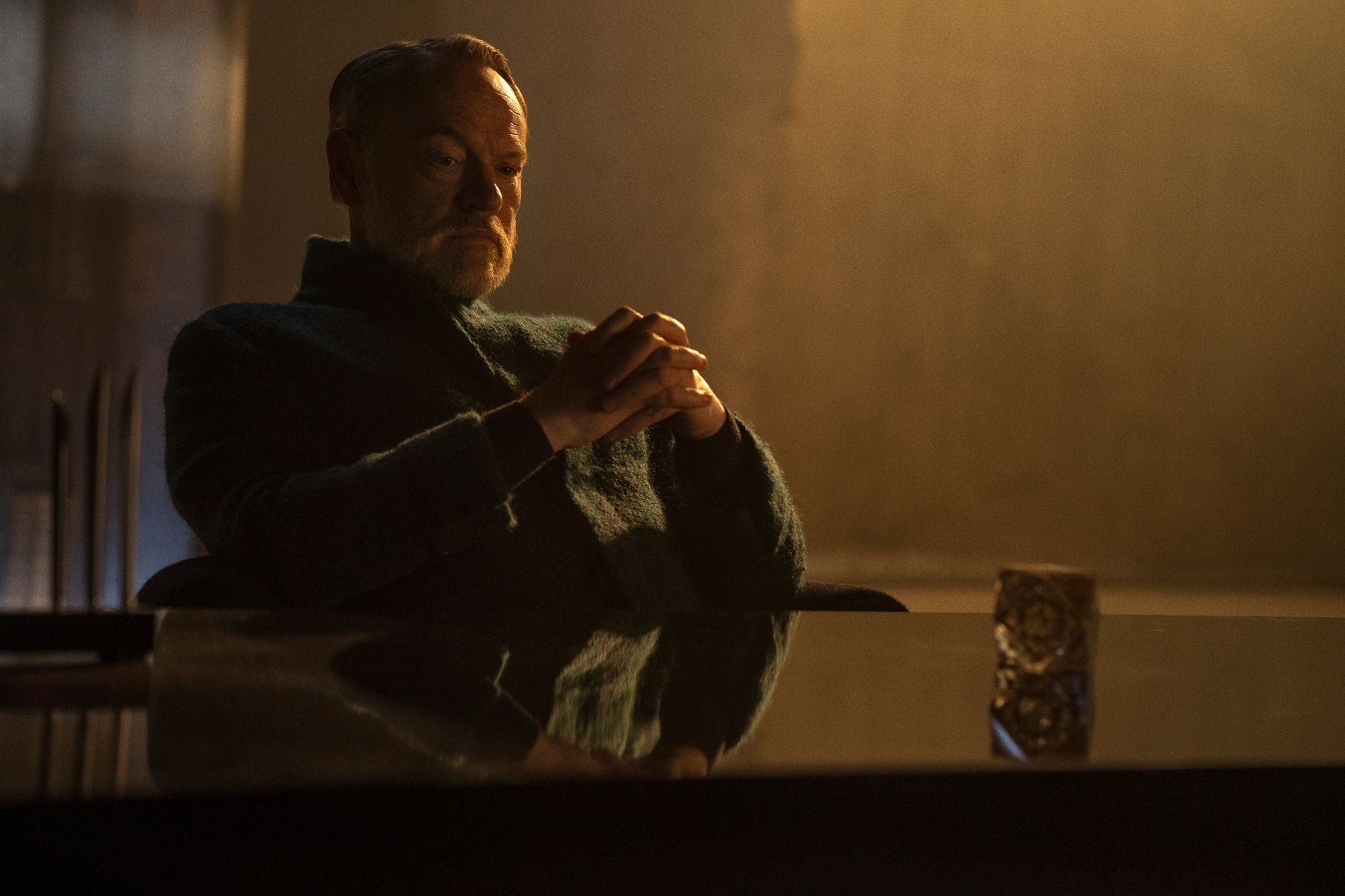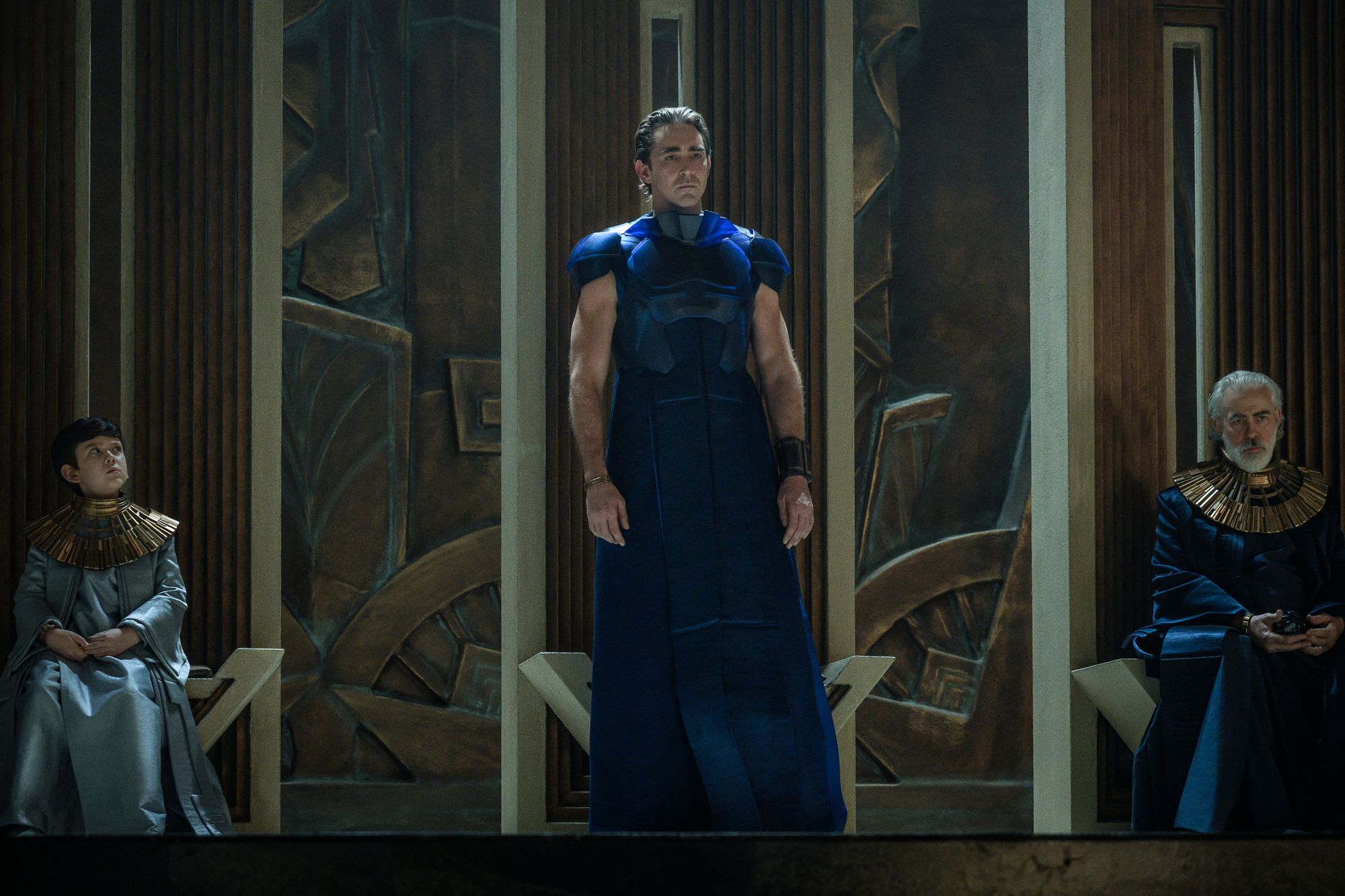Forward the Foundation

Note: light spoilers for the Foundation TV series and books.
I'm not a big re-reader of books. The total number of books that I've read cover to cover more than once is probably less than ten—not counting books I've read out loud to my children! But Isaac Asimov's 1951 novel Foundation is an outlier; I've read it at least five times through.
It's hardly a daunting read. It was originally published as a series of separate but related short stories, so it's fairly brief overall, and split into digestible extended vignettes. But it sketches a grand, multi-generational and pan-galactic picture of a hugely complex human society collapsing under its own weight, and the prediction of that collapse using an elegant new mathematics, so-called psychohistory, by prophet–scientist Hari Seldon. It's well known that Asimov's portrayal of the gradual but unstoppable decay and collapse of his Galactic Empire was heavily inspired by the fall of Rome.
What attracted me to the book, even early on as a teenager, was how deftly it explores the different ways that people build and exert power over each other—physical force, religious doctrine, technological superiority, financial and economic pressure—and how certain environmental constraints, such as a lack of resources, can beget innovation. In a sense, it was an introduction to politics. I was also fascinated to follow the idea that a psychosocial calculus could represent the human condition meaningfully, and make powerful predictions about its future.
Seldon was filled with the intense excitement of a man whose body only had grown old. 'Come, come. You saw how the result was arrived at. Put it into words. Forget the symbolism for a moment.'
Gaal said, 'As [Imperial capital planet] Trantor becomes more specialized, it becomes more vulnerable, less able to defend itself. Further, as it becomes more and more the administrative centre of Empire, it becomes a greater prize. As the Imperial succession becomes more and more uncertain, and the feuds among the great families more rampant, social responsibility disappears.'
Needless to say, the book has its flaws and quirks, partly a function of the time it was written in. For all of its grand scope, much of the action happens in conversations between handfuls of people in various unpreposessing rooms, with the practical detail largely skipped. The protagonists are universally men. And the amount of tobacco that features prominently is quite simply prodigious. Cigarettes, cigars, even snuff: you name it, it's there.
When Apple announced an ambitious-looking TV series based on Foundation and its sequels, I looked forward to seeing what they'd do with it, albeit with some trepidation. A healthy dose of modernisation was a given: the mostly anonymous locations and mountains of baccy were out, proper sci-fi epicness and several gender swaps were in—the latter made straightforward by Asimov's androgynous character names. Roles were changed a bit, subplots largely replaced with entirely new ones.

I never expected a literal screen adaptation, but there were inevitably aspects of it that bothered me. I was disproportionately annoyed that Hari was pronounced like Harry, rather than HAH-ri, and that the demonym for the planet Anacreon was inexplicably Anacreon, rather than Anacreonian, as in the book. (Maybe the actors couldn't wrap their tongues around it.) Jared Harris's Seldon was a bit too exasperating, and Gaal's tic of reciting prime numbers seemed like spurious geekery. The terrorist attack that ended the first episode and forced the emperor's hand was dramatic but far too on-the-nose, too convenient and essentially beside the point: psychohistory doesn't predict individual events, but without this one the screen plot implies that Hari and Gaal would have been executed and the Foundation wouldn't have been established. And The Fall is meant to be universal, internal and inherent, not down to a few troublemakers. The various threads unravelling at different places and times were hard to keep track of, and much more complicated than the source material.
Yet, amid the relentless drive to go big in plot and scale, many of the new ideas and plot points fit Asimov's narrative really well. The concept of the genetic dynasty is excellent, a stultifying, self-important expression of the Empire's lack of imagination and renewal. Its monopoly on the fastest technology for interstellar travel rings true and supports some interesting story arcs, like the long journey from Trantor to the new Foundation, which isn't portrayed in the book. Religion remains an important force, introduced as both something that Gaal was running away from and a political force challenging the Empire.
With the second series now imminent, I'm hoping that the new plot lines will be more coherent, but without losing the ambition of the first series. Perhaps interstellar trade and Asimov's interest in mental power will come more to the fore. I'd like, but I suspect I won't get, a bit more subtlety rather than a straightforwardly all-action Foundation, and more of a sense of the wider impact of the story within the Foundation and the Empire's spheres of influence, rather than a narrow focus on the leaders. The Empire is supposed to have been a good thing, and The Fall regrettable, but what we see of the emperors is increasingly cruel and repressive, so that sense doesn't come across. And what of psychohistory itself? The neatness of Seldon's posthumous appearances in the book may be a bit of a stretch, but in the TV version they don't seem to have much weight at all, with Seldon simulacra playing much more active roles—which makes his ideas seem reactive, rather than predictive.
Forward! Let's see where this goes. We'll just have to see if it plays out as we expect...
